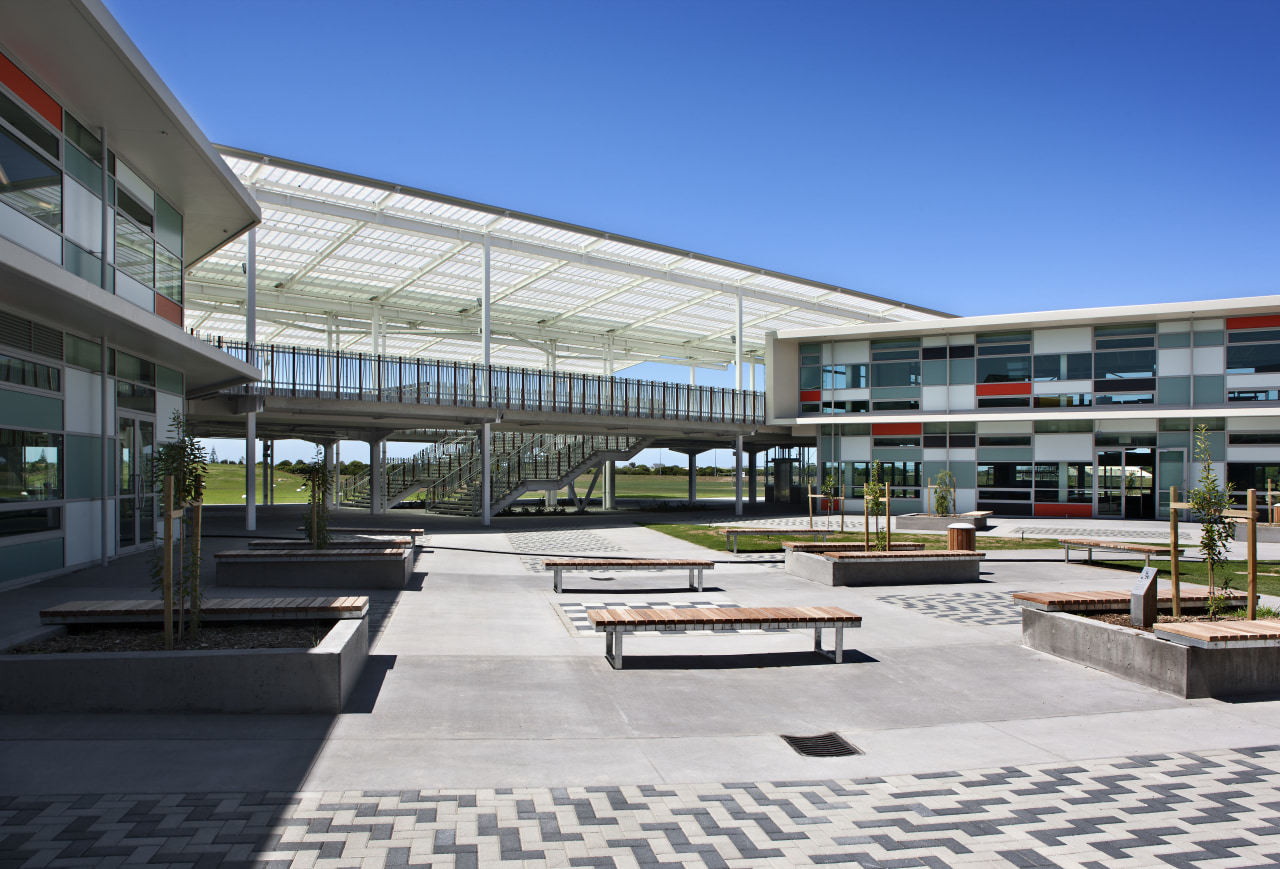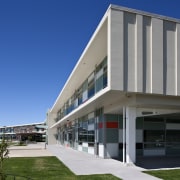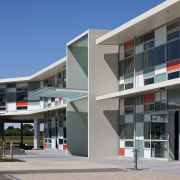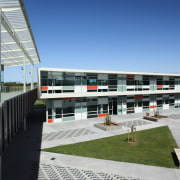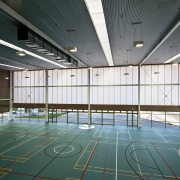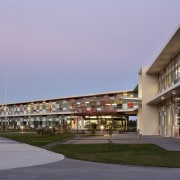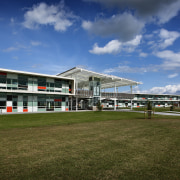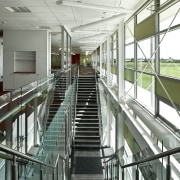Open minded
Papamoa College, by ASC Architects, embodies the principles of holistic education
In classrooms of the past, single-subject lessons delivered by the chalk-and-talk method had limited appeal for students. Now, the emphasis is increasingly on a more cross-discipline, real-world approach to learning. Supporting this is a move to a more nurturing style of architecture.
When the Ministry of Education (MOE) planned a secondary school for Papamoa, they asked the director of ASC Architects, John Sofo, to research progressive models of teaching and learning around the globe and their attendant architecture. Findings showed that enquiry-based learning is proving an effective and relevant learning model, says Sofo.
"Here, the traditional class group of 30 students is replaced with a learning commons of up to 100 students. In this environment, several teachers work together facilitating an enquiry project that integrates various subjects for an engaging, real life-related educational experience.
"In addition, this model is vertically streamed, bringing students of different ages together creating a mentoring environment for the younger ones."
The board of trustees and MOE embraced this modern approach which became the driving force for the two-tier intermediate and high school.
Papamoa College was conceived as a series of large, open studios, or learning commons each to accommodate 100 students and six teachers.
"This approach provides a nurturing environment for the students. They remain in the same studio as they move up through the years growing a sense of respect and ownership for their own domain. All of the six studios are light and vibrant," says Sofo.
"Specialist, smaller spaces are also provided for use by smaller groups, say for laboratory work."
Teachers too are immersed in this open-learning ethos rather than providing separate offices, colourful screen dividers are used in the studios.
However, Papamoa College extends beyond these large, uncluttered learning spaces with an overall design that opens up to the community and acknowledges its history.
The plan of the school is a cultural wayfinder when seen from above. The three splayed arms a fourth is yet to be built point out towards Mt Maunganui, an important Maori landmark, in one direction, and towards Gate Pa in the other. The latter is famous as the site where, in 1864, the Tauranga Moana tribes challenged British troops, stationed at Te Papa in Tauranga, to battle.
The school's long, colourful frontage is set back from the street creating a fresh landmark.
Credit list
Architects
Project manager
Services consultants
Interior fit-out team
Floors
Contractor
Structural engineer
Quantity surveyor
Roof
Awards
Story by: Charles Moxham
Home kitchen bathroom commercial design
Tall and handsome
Space, light and industrial accents
The stage is set
